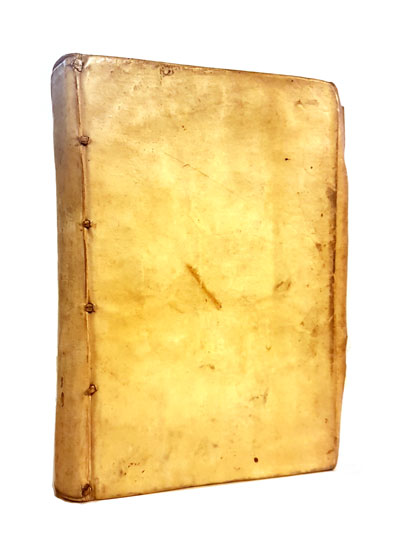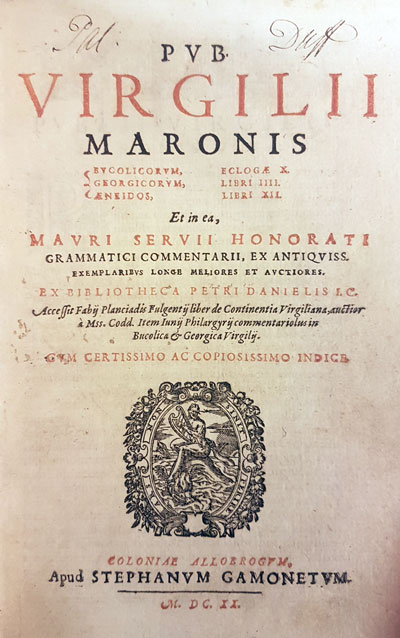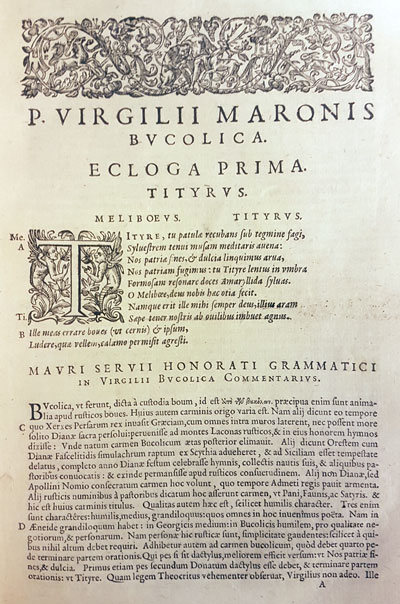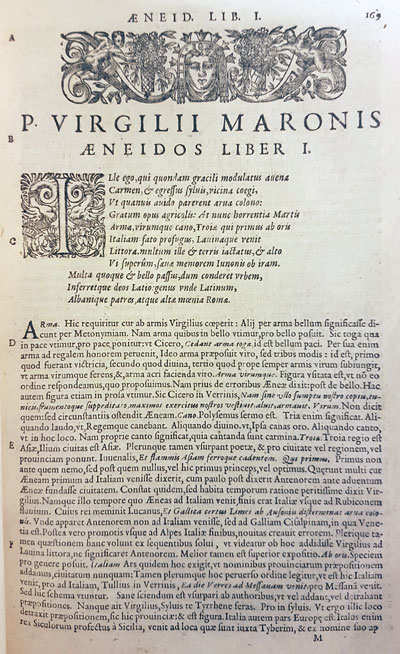All of Virgil’s works – the Bucolics, Georgics & The Aeneid – in the original Latin along with a commentary by the famed grammarians Maurus Servius Honoratus and Junius Philargyrius. This looks to be the second edition of the work, with the first edition published in 1600. Very scarce.
About the commentators:
Maurus Servius Honoratus was a late fourth-century and early fifth-century grammarian, with the contemporary reputation of being the most learned man of his generation in Italy; he was the author of a set of commentaries on the works of Virgil. These works, In tria Virgilii Opera Expositio, constituted the first incunable to be printed at Florence, by Bernardo Cennini, 1471.
The commentary on Virgil (Latin: In Vergilii Aeneidem commentarii) has survived in two distinct manuscript traditions. The first is a comparatively short commentary, which is attributed to Servius in the superscription in the manuscripts and by other internal evidence. A second class of manuscripts, all deriving from the 10th and 11th centuries, embed the same text in a much expanded commentary. The copious additions are in contrast to the style of the original; none of these manuscripts bears the name of Servius, and the commentary is known traditionally as Servius auctus or Servius Danielis, from Pierre Daniel of Orleans, a French jurist and classical scholar, who first published it in 1600. A third class of manuscripts, written for the most part in Italy, gives the core text with interpolated scholia, which demonstrate the continued usefulness of the Virgilii Opera Expositio.
The authentic commentary of Maurus Servius Honoratus is in effect the only complete extant edition of a classic author written before the collapse of the Empire in the West. It is constructed very much on the principle of a modern edition, and is partly founded on an extensive Virgilian critical literature, much of which is known only from the fragments and facts preserved in this commentary. The notices of Virgil’s text, though seldom or never authoritative in face of the existing manuscripts, which go back to, or even beyond, the time of Servius, yet supply valuable information concerning the ancient recensions and textual criticism of Virgil.
Servius set his face against the prevalent allegorical methods of exposition of text. For the antiquarian and the historian, the abiding value of his work lies in his preservation of facts in Roman history, religion, antiquities and language, which but for him might have perished.
Junius Philargyrius (Philargirius, Filargirius) was an early commentator on the Bucolica and Georgica of Vergil, dedicated to a certain Valentinianus. He was a member of the Junia gens, active in Milan. The text is later than the first quarter of the 5th century, but dates in the 6th or 7th century are possible.





